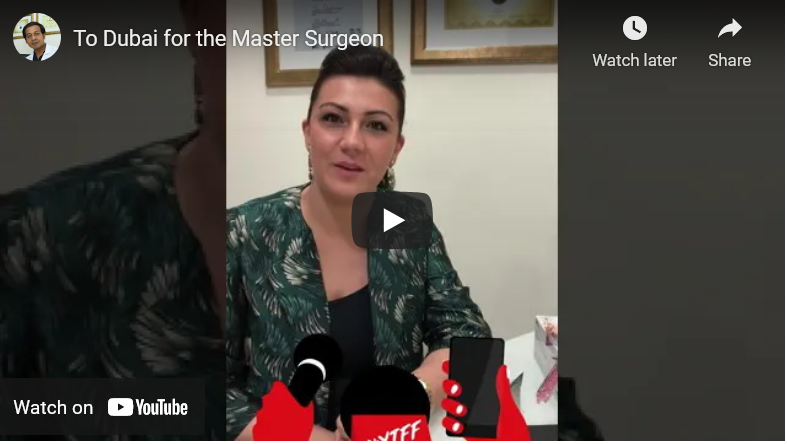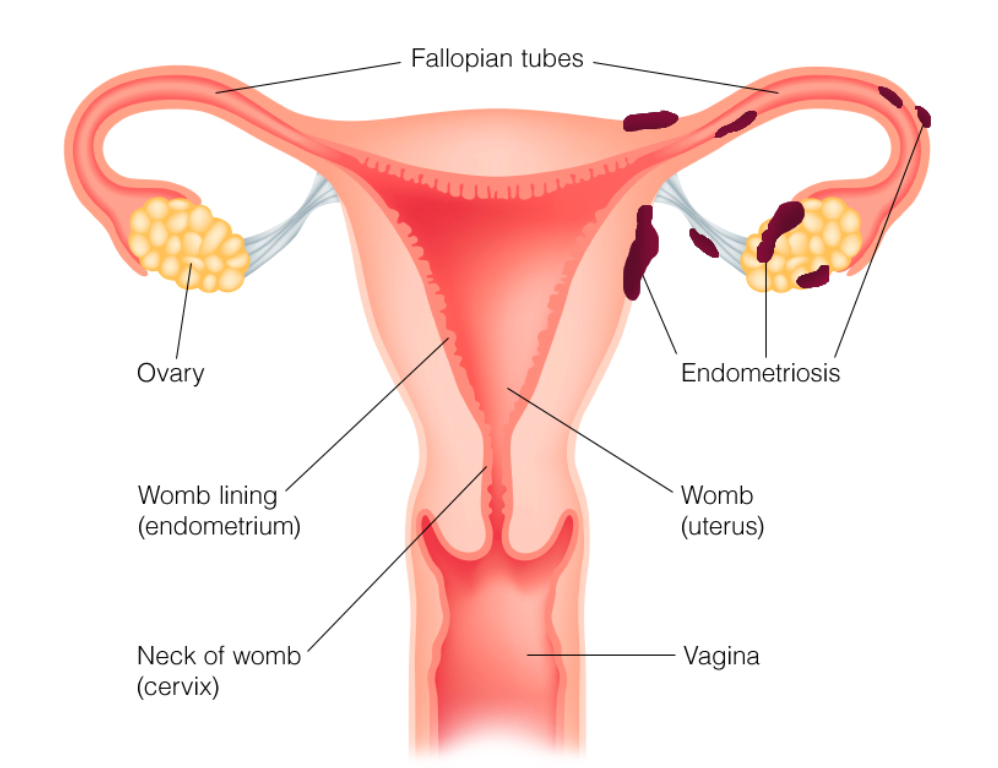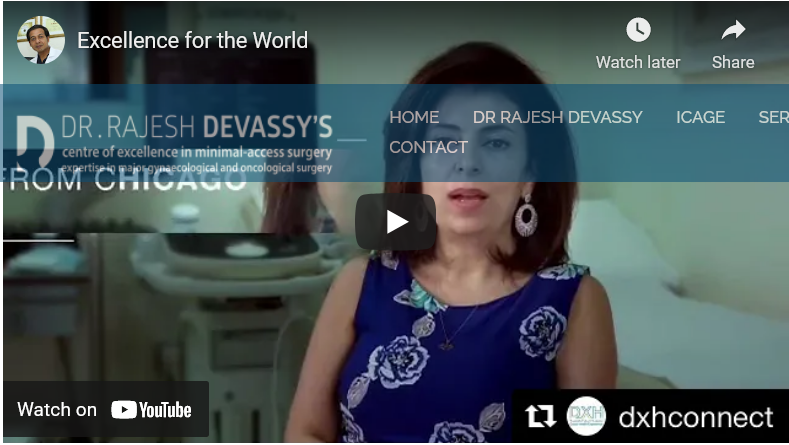Dubai: In what could be one of the world’s heaviest fibroids to be removed through laparoscopy myomectomy in the world, a 4.7kg tumour was pulled out from a patient’s womb at a private hospital in Dubai recently.
Dubai: The Dubai London and Speciality Clinic recently held a live laparoscopy surgery demonstration. The live demonstration of the technique of bag morcellation for fibroid removal was attended by 70 surgeons and described as the safest extraction technique by the clinic’s team of doctors.
Dubai Health Experience with Dr. Rajesh Devassy’s centre of excellence

One of the most common causes of chronic pelvic pain is endometriosis, a condition in which endometrium starts growing outside of the uterus and covers are reproductive organs and tissues. To discuss this important and troubling condition, we called one of Dubai London Clinic’s most prominent experts, Dr. Rajesh Devassy, who kindly provided answers to key questions.
Dr. Devassy, an experienced Gynaecologists, has specialised in advanced Endoscopic Surgery and Laparoscopic Pelvic Reconstructive and Oncological Surgery. In the decade and a half of daily intervention, he performed at least 10,000 Endometriosis surgeries.
Dr. Devassy, could you explain what endometriosis is?
Dr. Devassy: Endometriosis is the appearance of the endometrium outside the uterine cavity. The most commonly found endometriosis in the peritoneum of the pelvis, as so-called chocolate cysts in the ovary and in the uterine muscle (adenomyosis uteri).
Endometriosis may also affect the bowel, bladder or other organs in rare cases. Depending on the place of occurrence, endometriosis can cause various symptoms. The most common include lower abdominal pain, period pain, pain during intercourse and infertility. Doctors usually confirm the disease with the help of laparoscopy, and other diagnostic tools.
However, it is possible for trained physicians to raise at least the suspicion of this disease due to the complaints of an affected woman or a gynaecological examination. Imaging procedures (ultrasound, magnetic resonance imaging) may indicate endometrial cysts or endometriosis of the uterine muscle (adenomyosis uteri).
Of the many postulated theory of the origin of endometriosis, the reverse menstruation and peritoneal cell transformation theory are the most scientifically evident ones. Causative factors for the condition could be due to the following:
genetic predisposition,
obesity,
nulliparity,
dietary deficiency,
loss of immunity,
anxiety and surgery.
What are the first signs of this condition?
Dr. Devassy: Painful periods requiring pain medication is the first sign, more advanced stages will present with painful ovulation (mid-cycle). Painful movements, like straining, sitting and exercise postures would clearly demonstrate pain in the advanced stages of chronic endometriosis.
Generally, 10 percent of women are affected in total, but this number is much higher in young women unable to have children: an unfortunate figure of 30 to 40 percent. While the disease itself is usually not dangerous, and in many cases completely without symptoms.
What are the other common symptoms that require further investigation?
Dr. Devassy:: Millions of women suffer from the saga of either a diagnosed form or an undiagnosed form of endometriosis – and, interestingly enough, they might not even know this. The disease has a camouflage, which could only be discovered after several years with resultant symptoms which are pronounced and marked signs are thus demonstrated on diagnostic investigations. It is a common cause of painful periods, bothersome backache, painful sexual intercourse, and female infertility.
In severe disease cases women may experience:
Severe painful periods requiring hospitalisation for pain management
Low back pain and painful sexual intercourse starting with even a mild trigger reaching intolerable and debilitating phases.
Painful defecation and blood in stools indicate the spread of disease into the bowel, advanced stages and upper abdominal symptoms also result in digestion disorders.
Painful urine voiding and blood in urine occurs when endometriosis affects the urinary system.
Endometriosis in advanced stages and potential has also been seen to affect the chest and Muscular system causing remote symptoms.
Difficulty to conceive with compromised quality of egg occurs due to the invasion of the disease into the ovarian reserve.
Severe stages of disease cause adhesions of the reproductive organs resulting in disruption of the transportation of egg& sperm through fallopian tubes and ovaries.
Thus, the stages of disease continue to progress, endometriosis of the uterine muscle will also cause the situation to reject the embryos and failing conception
Patients also might feel unusual fatigue, diarrhoea, constipation, bloating or nausea, especially during menstrual periods or at ovulation.
What are the so-called endometriosis stages?
Dr. Devassy: We can distinguish mild, moderate and severe endometriosis. Patient with mild disease unlikely have any significant symptoms and treatment. Once we confirm the suspicion to endometriosis, we manage it with hormonal suppressive therapy and fertility targeted therapy.
Moderate and severe stages of the disease have more noticeable symptomatology. We turn to more vigorous investigative modalities, and decide for surgical therapy followed by hormonal suppressive treatments.
What are the most common treatment options?
Dr. Devassy: The growth of the disease depends on the female sex hormones (estrogens). Therefore, we are able to achieve regression by using the hormone suppressive treatment. The various established therapeutic concepts (progestins, estrogen / progesterogen combinations, GnRH agoinists and GnRH anatgoinists) have comparable efficacy. The side effects differ considerably.
Patients with pronounced endometriosis, on the other hand, benefit from surgical therapy. It’s best to clear all endometriosis cysts completely. The endometriosis in the peritoneum can be cut out or removed by heat in the form of Laser or electrocoagulation. Surgical expertise is the mainstay in the endometriosis surgery. It is important to treat the disease with maximum radicality and preservation of reproductive and visceral organs with minimal damage is a top priority.
Would you recommend patients with chronic pelvic pain, or any other symptoms, visit your office?
Dr. Devassy: It is always a good idea to visit a specialist. For best results it is necessary that you are properly diagnosed. In addition to the diagnosis and the detailed advice of women with this condition, we offer the targeted therapy. Such therapy depends on the nature of symptoms, type of patient, age and their desire for fertility.
If you are suspected of endometriosis, or known endometriosis which has not been sufficiently treated or so far unfulfilled desire to have children due to this disease, we will be happy to have a detailed discussion in person. You can easily book an appointment via our online form.
Middleeast Women’s healthcare capital at Dr Rajesh Devassy’s Centre of excellence in Dubai London clinic & Specialty Hospital Dubai





